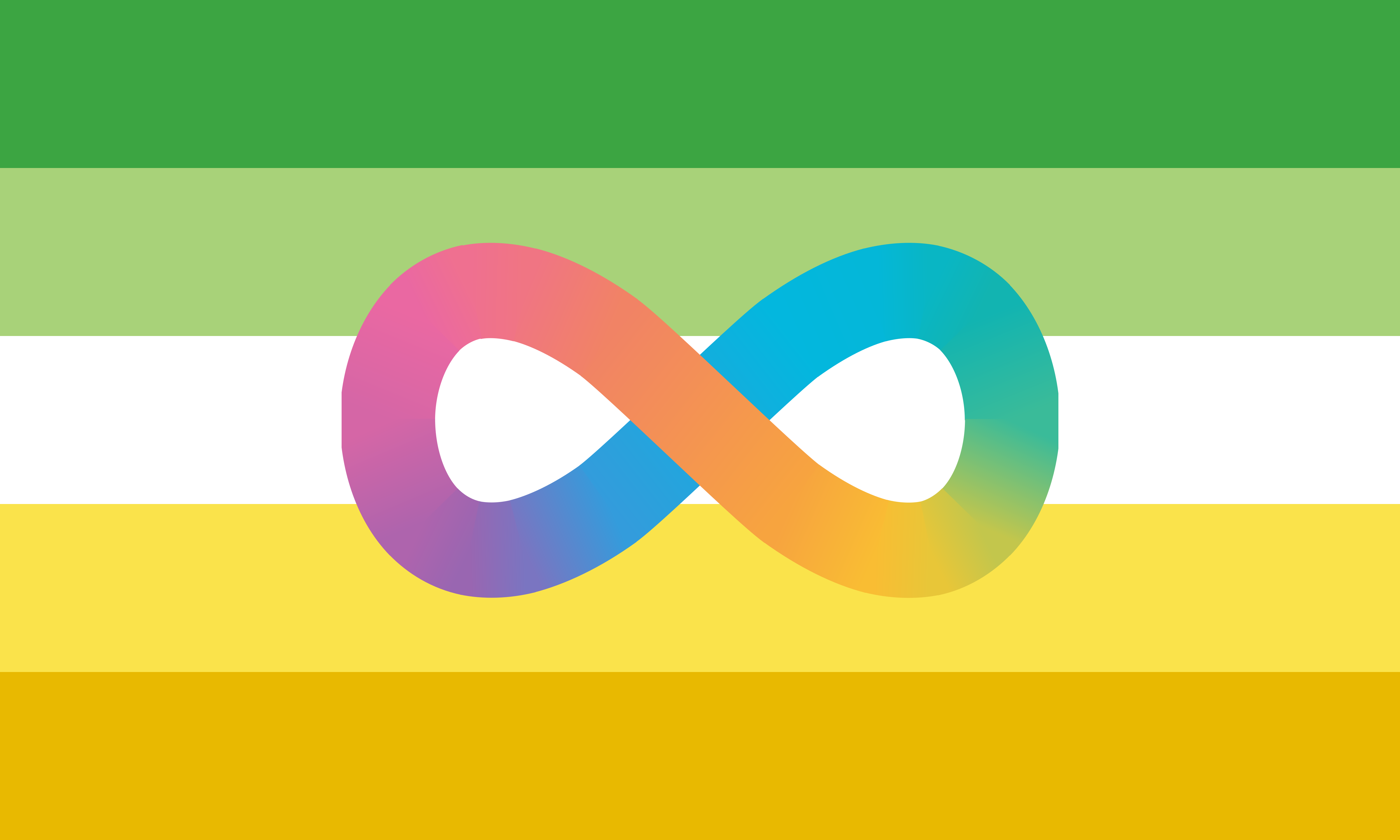Deconstructing Social Dynamics and Relationships Through Neurodiversity
- Psychology, Anecdotes
Latest revision:

From a very young age, people learn how to interact with other people, and this learning experience continues through puberty and adulthood. How are people similar from each other? How are they different from each other? What is and is not socially acceptable? How does context influence what should and shouldn't be done? Which behaviors are universal and which are cultural? How does sex and gender affect interactions? When is consent needed and when is it already implied?
While many of these things have to be learned the hard way, many of them are already built into us by instinct, can be extrapolated from our own personalities, or can be learned relatively easily through intuition thanks to natural selection from previous generations encouraging that skill. And of course, each individual may have an easier or harder time in each aspect of this learning. While this can lead to biases and stereotypes, it's generally a pretty good way to learn.
That's, however, assuming the person doing the learning is a relatively normal person. When they are not, their natural behavior will not match others, their assumptions about how others think will be wrong, and the way they process information may not be compatible the way how social intuition is normally developed. That person will probably go through their entire life wondering where is the instruction booklet with all of the unwritten rules everyone else seemingly know naturally, and painfully trying to figure out its infinite list by trial and error.
A person like me, for example.
This is probably the hardest article I have ever attempted to write about any subject, because during the past two years or so, a few key discoveries in my life challenged my own perception of the world, and it took me that long to process my thoughts and feelings on this subject. Even as I write these lines, a linger of doubt remains in me, as I keep wondering if maybe I have yet to find the right words to express myself, or if one day something in me will awaken and make me experience what has been hidden from me since birth, like a blind person knowing about the color red only in terms of wavelengths of photons and some vague "warm" feeling from those that see it.
Where to even start?
Love
I guess I should start with my struggles for finding love. Despite actively looking for a monogamous relationship for more than a decade, and hoping for one to just naturally happen to me out of nowhere like seemingly so many people for another decade beforehand, I have never been able to achieve any kind of relationship with anyone beyond platonic. My record to this day, for the lack of a better word, remains at two in-person dates with the same woman before some deal-breaker would surface or before she would no longer want to meet me without a clear explanation. It's infuriating, especially when considering that I don't believe my requirements are anything niche or special: just similar values, compatible lifestyles and good sexual chemistry.
What I recently realized however is that many people, if not most people, look for something more, and that has completely re-contextualized my approach to dating. Simply put, I realized that my definition of romantic love didn't match the one used by the general population, and that a normal relationship isn't just deep friendship with exclusive sex.
For instance, can you tell when something is romantic in real life from something that isn't? I can't. I can think of many examples of things that are generally considered romantic, but that's only because other people told me they are supposed to be romantic, not because I understand what makes those things romantic. For example, what's so romantic about candles and flowers? Why not lava lamps and pineapples? I have no intuition on the matter, and don't really know why the general consensus is as it is. I feel absolutely nothing about these things other than their intrinsic values, if any.
A spark? A crush? Falling in love? Butterflies in my stomach? Feeling myself melt or giddy in someone's presence? Having my thoughts invaded by someone I like? The desire to impress someone to like me? The heartache of unreciprocated love? I have never experienced any of it. The closest I've felt from these things are loneliness and sexual attraction. That's it. The lyrics of love songs mean nothing to me. The feelings experienced by characters in romantic books and movies are completely foreign to me. Love at first sight sounds like a serious mental disease to me. The desire for possessiveness and/or emotional exclusivity sounds horrifying to me. Sacrificing your individuality for someone else seems to be nothing but self-destructive to me. The value of marriage beyond the potential economic benefits eludes me. The idea of starting a serious relationship with someone before even finding out if they could be a good friend goes against all of my values. The fear of ruining a friendship with someone by confessing your love to them is pretty much the antithesis of friendship to me.
Some people reading this are probably thinking Oh, he just never fell in love. One day, he'll find a soulmate and understand. I'm not denying the possibility, but again, I'm in my 40s right now. It's much more likely that I'm just physically incapable of naturally feeling these emotions than being so unlucky in life that the trigger for it has yet to happen. Maybe some of you are even thinking Oh, he's just not ready to open up for love yet. To them, I say that if this very article is not evidence of my willingness to be vulnerable with others and to accept their own vulnerabilities, I don't know what else you think is necessary.
Anyway, it is clear that I am aromantic. Despite longing for a relationship all of my adult life, I have never felt romantic love, or at the very least not in any way resembling the way people normally experience it. I had never considered the possibility until I heard that romantic attraction was distinct from sexual attraction since since the word "love" has so many different meanings and since, well, no one I've ever personally known mentioned that distinction. I always assumed romance was a social construct to sell stuff and nothing more.
So... why am I still seeking a relationship anyway?
Well, there are a few factors. The first one is that unlike the stereotypical aromantic, I am not asexual. I'm actually aromantic allosexual, or aroallo for short. More precisely, I'm heterosexual, and even have an extremely high sex drive that has only grown in years. I would go so far as to say that I'd be down to have sex marathons of several hours every day if given the opportunity to do so safely with someone I'm attracted to and that I can trust. In fact, the only reason I don't participate in ethical non-monogamy is because I have a hard time trusting people with sexual health and unplanned pregnancies, and that even if I were to trust my direct partners, I would still not trust their other ones and those later down the chain without personally knowing them well.
The other factor is that unlike some aromantics, I am not loveless either. To clarify, I am not talking about liking things or being passionate about specific subjects or causes, but about building an emotional connection with someone that makes me want to care about them. That said, I do not love in that sense easily, and in fact I am generally quite uncomfortable using this word due to how it can easily be misinterpreted. Therefore, I can't really say that I love anybody among my relatives and my friends. I see these relationships exclusively platonically and either transactional or made out of convenience. Unless something were to change in the future, they could all die tomorrow and I may shed a tear or two for the loss, but I would quickly move on with my life. It's not that I don't care about others, but rather that I don't really feel emotionally attached to them, unlike good music or fiction which can make me cry buckets.
However, excluding myself, there has been exactly one woman with which I can genuinely say that I have loved, and that I still love. This one individual is the only person in the world with which I have connected emotionally with. However, I did not feel romantic love for her. Rather, I felt companionate love for her. (This should not be confused with compassionate love, which is a completely different thing.)
For those unaware, in psychology, there is this concept of passionate love vs companionate love. Passionate love, also known as romantic love in the general literature, is normally the first phase of a romantic relationship where attraction occurs, and generally lasts from a few months to about two years. Companionate love is the calming and reassuring feelings that normally follows afterwards to keep the attachment going, and it can last for decades.
Basically, my brain skipped the passionate part and went straight to the companionate part.
What I saw in this woman was a strong and gentle individual that was not afraid to say what she wanted and take the initiative despite her life circumstances, push others to be the better of themselves, and willing to be vulnerable despite the general incomprehension of others. Funnily enough, I had not realized at the time that she was constantly hitting on me, or why she wanted to spend time with me alone. Despite this, her mental struggles resonated with me at a level beyond anything I have ever felt before or since. For the first time in my life, I felt there was someone out there that despite our different life paths and obstacles, experienced similar struggles to me that I could understand. For the first time in my life, I felt that the empathy I had for someone was not just an abstract construct based on my own emotions to understand other people's behaviors, but an emotional one as well. At that moment, my mind went I know what you've gone through, and we can confront it together and support each other along the way. For the first time in my life, I understood emotional intimacy.
And the irony of it all is that this woman is not real.
She's a video game character from Final Fantasy VII.
Her name is Aerith Gainsborough.
Let that sink in.
Done? Now try to listen to Aerith's Theme without having strong feelings yourself.
The one time in my life that I felt love for someone so far in my life was actually an artificial construct designed to be loved, because it was more impactful for the story later on in the game. The one time in my life where I felt emotional empathy with someone was for a bunch of pixels on a computer screen telling me that she could hear the voices of actual invisible spirits passing by regularly in her head and that nobody believed her, even though I obviously never talked to a spirit myself. Somehow, this impossible situation is the one that made me relate to anyone the most. It's been more than 25 years since I've lived this and I'm still emotionally attached to her, despite knowing full well the absurdity of loving a scripted computer program.
Needless to say, Final Fantasy VII has been an extremely influential game in my teenage years. Not only is it a masterpiece in storytelling and game design that not even its blasphemous "remake" can get close to replicate what made it so special and magical, but its characters with complex motivations truly feel alive beyond the screen. This game came to my life just in the perfect time during my puberty, thanks to its sexual and romantic themes. Unfortunately, while I regularly experience lust for real women, I have yet been able to experience companionate love again, but at least I can imagine it and hope to find it for real.
So what do I want in love? I want to hang out with a smart, gentle and trustworthy woman with a strong independent will. I want to connect with her physically and emotionally. I want to live alongside her as life companions, supporting each other in times of need and making ourselves happier in each other's presence otherwise. I want us to cuddle, kiss, caress and hug each other, have good times together, have passionate sex together as much as we want, and fall asleep in each other's arms when we're too exhausted to continue. I want to wake up every day knowing that someone near me loves me in their own respectful way, and that I can love her back in my own respectful way without shame or judgment. And I want to be with her as often as possible, forever. That's the kind of relationship and intimacy I want to share. In short, I'm hoping for emotional teamwork, not codependency.
I've tried so many times to get intimate with people to live something similar, but alas. All I can do is try and try again in different ways, hoping for the best. This alterous attraction I have for women is just part of me, and I hope I will be able to fulfill that need some day.
Social struggles
If it wasn't clear previously, I'm not so great at forming relationships with anyone. Being an introvert certainly doesn't help, but I'm definitely not shy, and I rarely refrain from taking initiatives or going on a scene in public. I enjoy doing improv comedy, for example.
But normal social situations makes me anxious, not just because it drains my energy, but because I never know how to start and maintain a conversation. I naturally give short and direct answers to questions unless a deeper explanation is necessary, and when I have to say more I always have to be careful to not being misinterpreted, and that's if I even want to talk at all. This is even worse when I write emails, because people can't rely on my nonverbal cues to realize that my bluntness is supposed to be constructive criticism and not insulting. When I speak, I state straight facts. There's no hidden meaning. But for some reason, people tend to look beyond the words to find a speaker's true intent instead of, y'know, asking for it. Oh, and expressions and analogies? I've been mocking them my whole life since they make no rational sense and can be twisted to represent anything.
Hey, that big movie that just got out? Yeah, I probably don't give a shit about it and don't have anything of value to say about it beyond ranting on the lack of creativity and innovation in the movie industry nowadays. Hey, what I think of your new haircut? Yeah, I most likely don't like it or think it's just fine, and no it's not me being rude about it - it's because you asked for my honest opinion. Hey, that tragedy going on in the news or in your family? Yeah, I'm powerless to do anything about it, so I would appreciate if you could shut up and not pollute my day with your venting unless I can actually help you deal with the situation without making me feel miserable. Hey, your opinion about that controversial topic? Yeah, I'm not really in the mood to discuss the same topic over and over again with people that are likely to be blinded by emotional arguments anyway, because if I do it'll most likely just get worse. Hey, that sports game coming up? Yeah, well you wouldn't even care about it if your team wasn't competing in it, and that team is not even truly yours to begin with, so please don't bore me with your mental dissonance. You get the idea. Can we all please change the subject to one where I don't feel excluded or forced to participate?
Add to that the fact that I also have a hard time looking at people in the eyes. Even when they are wearing opaque sunglasses it makes me feel super uncomfortable and dizzy due to the nonverbal sensory overload. I've heard some people describe looking into people's eyes as something intimate or making some kind of connection between people. Personally, it feels like someone is attacking me instead, like the Eye of Sauron in The Lord of the Rings. But if you don't look like you do it enough, people think you're ignoring them, so I have to fake it by focusing on the nose instead. How can someone focus on two distant eyes simultaneously anyway? I can only focus on one point, not two!
I feel like I'm constantly walking on eggshells. One wrong move makes me get unfairly judged or accidentally hurt someone's feelings due to a bad assumption on their part. While I always try to stay authentic to myself, my relatives, my friends and my co-workers, I generally can't really be myself when interacting with strangers for the first time without getting hurt in return, including when walking down the streets. Like, why do random people say "hi" to me and disturb my peace in the name of politeness? Now I have to actually fake a smile and do something to get out of that situation without looking like a jerk, and it stresses me out! Just leave me the fuck alone unless you want to actually talk to me, and if you do want to talk, please don't make it about generalities because that's one of the most irritating thing you could possibly do, as I just explained earlier! I would much prefer it if you could give me genuine compliments, ask questions about myself or ask me out! (Speaking of which, why I am almost always the one that takes this kind of initiative with the people I meet? I can only recall one instance of the opposite happening.)
I was never a follower unless the reason for that behavior made logical sense to me. For example, I remember in elementary school a chess game I had as part of class where each turn would be played by a different student, and all everyone did was to move pawns from their starting squares by one forward to match everybody else, and when it came to my turn I moved the last unmoved pawn by two squares instead because it was a better strategic decision, to all of the other children's disappointment. Similarly, in higher education, I flunked some exams because I refused to lie to make my answers match the opinion of the teacher, or because my answers were strictly better than the teacher's. Things have been much better professionally, but sometimes I still have to deal with stupid people prioritizing obedience or short-term profits rather than the actual success of the business. In a society still rewarding memorization and conformity over more practical skills like intelligence, this is especially painful.
As if all this wasn't enough, stress and anxiety doesn't just affect me in the inside, but on the outside as well. During my teenage years, I started developing twitches in my neck and rales in my throat. I can hold these tics up to a certain extent, but they have to come out eventually, and they become more intense when I do due to the build-up. People very rarely notice, but it's quite annoying to me, and the symptoms get worse while I'm stressed or tired. One of the rare times someone did, it was a math teacher in high school that was convinced I was doing it on purpose just to piss him off. I was eventually diagnosed with Tourette syndrome in early adulthood for this condition. While I can easily manage, it's just one of the many factors why I try to stay home and relax as much as I can.
Speaking of which, I generally don't like going out to public or private events because of the loud noises, foul smell or the social pressure to do things I don't want to, such as eating and drinking unhealthy stuff. The range of social activities I like is also fairly limited as I hate traveling, I easily get bored from non-intellectual stuff, and my body can't ensure physical stress well even when training regularly to stay in shape. I can't really talk about my hobbies offline since I only know a handful of people that aren't just into the mainstream stuff, and I rarely have good discussions about science and mathematics since most adults I meet still struggle with fractions and critical thinking.
Going back to dating, most women I meet online and offline for that purpose appear superficial to me, covering their faces and nails with disgusting products covering their true beauty, bragging about how many countries they've visited as if it mattered in the grand scheme of things, how much they love their pets more than any human despite the fact that they can barely communicate with them, and how much they care about this great cause that just happens to be the popular thing in the news and not do shit about it beyond maybe mentioning it on social media. If I follow the usual dating profile optimization tricks online I get a bunch of matches but from the wrong people, and when I try to be as open as possible from the get-go I get barely any matches at all and they are generally from insecure people that are definitely not ready for a healthy relationship of any kind. When I do get on a date, I have to be very careful to not actually follow the way I normally socialize with strangers even though they are because it's not representative of who I am in private and may give artificial vibes, but if I don't do it at all I may give a bad first impression and be quickly dismissed for it.
Heck, I'm pretty much blind to flirting and have no understanding of how to do it despite my various readings on the subject. It's quite frustrating. Dating is hard enough as it is already for neurotypical people, but this just adds an extra layer of needless stupidity over my aromantism. How does someone flirt respectfully without knowing the other intimately already anyway?
Needless to say, these things don't help me find new friends or lovers.
Up until recently, I thought that all of these were just because I was a highly-sensitive asocial guy with an above-average intellect. However, one day while I was trying to figure out a potential solution for my growing stomach acid reflux problems, I discovered that there was a correlation between people suffering from that particular condition at a relatively young age like me and them also being on the autism spectrum, and when trying to research what kind of link could possibly explain that, I stumbled upon an online guide in French explaining the struggles of autistic people compared to normal people, and I recognized myself in the vast majority of the numerous examples provided. I'll spare you the details as to why my local government violated my rights due to a technicality and forced me to go to a private clinic to get tested instead of a public one, but one interview and a long series of tests by a neuropsychologist later last year, and I got a hefty $2000 bill and an official diagnosis of being mild on the ASD and without intellectual disability. It's worth noting that I was also tested negative for ADHD, and that my IQ was measured to be around the 95th percentile overall and at the 99th percentile for perceptual reasoning on the WAIS-IV test... and that's while I was sleep-deprived during testing!
I knew about autism before, but it was always framed to me through the stereotypical shut-down retarded boy alternating between repetitive actions and crisis-level panic attacks while being unable to complete the most basic tasks, or through the adult savant with superpower-like mental abilities for a few things in their lives yet unable to manage the rest of it without external support. Considering that I'm smart and fully independent, these extreme examples don't match me at all. Besides, why would I think I was autistic when my own mother is a psychologist that should already be familiar with the matter and had every opportunity to notice? Well, my belief is that she willingly ignored the signs because she wanted me to live a normal life in a normal environment without prejudice, without realizing that this was impossible.
My understanding of autism now is that autistic people's sensibilities are completely out of whack compared to neurotypical people, with some things being felt in extreme ways while others barely noticed at all, causing all sorts of physical and psychological issues. Among other things, these misaligned sensibilities mostly blinds them to many forms of non-verbal communication, requiring communication to be verbal, direct and clear. This encourages them to have a more analytic view of the world over an intuitive one. This also encourages them to pursue an intense interest as a safer and more predictable space to manage the chaos. That explanation is almost certainly an oversimplification, but that's the best way I could explain how I personally feel myself to others.
It's hard to say if my life would have been better or worse had my educators knew I was autistic at the time, but what I can say for sure is that I had been victim of prejudice throughout all of my childhood and education without it, and I'm still having to live with the negative repercussions of it today. I still remember when I got my Tourette syndrome diagnostic back in my university days, specifically how some seemingly-intelligent people that refused to believe some of my struggles beforehand suddenly became comprehensive when I had a label. I believe it would have helped even more if I had the ASD label back then as well, and even before that.
It's too soon to say if my late diagnostic will change much now that I'm already far in my adulthood, but at the very least, it's useful knowledge at my disposal when interacting with other people to better understand each other.
On a side note, these past few months, I tried participating in a few group activities almost exclusively involving other people that were also supposed to be autistic without intellectual disabilities. (Proof of diagnosis was not required, so there may have been a few bad apples.) While I did recognize many of my quirks in the other participants to a more extreme degree than me, I generally did not vibe well with them at all either because they were too passive, too overbearing, too stupid or too disrespectful. I did made some friends among the handful of exceptions, but I couldn't find a way to hang out with them much unfortunately due to diverging interests or their own personal struggles. That is to say, you should not extrapolate the personalities of a few autistic people to all of them.
Enlightement
So what to make of all of this?
Well, first of all, there's not really a neat way to describe myself. I'm a minority among minorities. I'm technically queer, but still cisgender and heterosexual. I'm technically aromantic, but still want sex and companionship. I'm technically autistic, but I'm smart and well integrated into society.
I guess if I were to describe myself with a bunch of labels, I could say that I am a mildly-autistic heterosexual aromantic computer nerd with intellectual giftedness, a very strong libido and a little bit of Tourette syndrome on the side that experiences strong alterous attraction for companionate love and with an intense interest in gaming. But that's kind of a mouthful, and it sounds way worse than reality.
What's more important however is how much realizing this about myself made me understand the world around me better, and I hope that this introspection will make you more aware and understanding about how humans think and interact as well.
Related content I wrote

Case Study: When Google Customer Support Becomes Generative AI Slop
- Anecdotes, Business, Psychology
When you have an issue with a product or service and try to reach customer support for it, would you rather deal with a frustrating automated system designed to filter out callers, being constantly redirected from department to department without resolution, dealing with an agent that clearly don't…

The Future of the Video Game Randomizer List
- Video Games, Programming, Anecdotes
It's hard to believe that it's been almost 8 years since I first posted on the ROMhacking.net forums a list of video game randomizers that I found online, and that it would evolve into the massive project it has become today, with almost 900 entries currently being listed. It's always a strange…

A Corrupt Judge's Prayer
- Fiction, Psychology
That's not what the law says. And if it does, that's not what the constitution says. And if it does, that's not what their authors meant. And if they did, the case has no merit due to a technicality. And if there isn't, I will delay my decision. And if I can't... It's not my responsibility.

My Personal Video Game Completion List
- Anecdotes, Video Games
I thought it would be fun to track the long list of video game that I have beaten and/or completed for reference, so I've done just that! There may be a few mistakes here and there due to secret features unknown to me, or due to misremembering details of my past gaming experiences, but I believe the…

Upgrading Your Cybersecurity from Cowboys to Sheriffs
- Security, Business, Anecdotes
Roaming throughout the countryside, dangerous desperados are awaiting in their hideout for the perfect opportunity to rob their victims in silence. Powerless, the authorities have posted wanted posters on public boards with cash bounties for any information that could lead to their arrest or death…